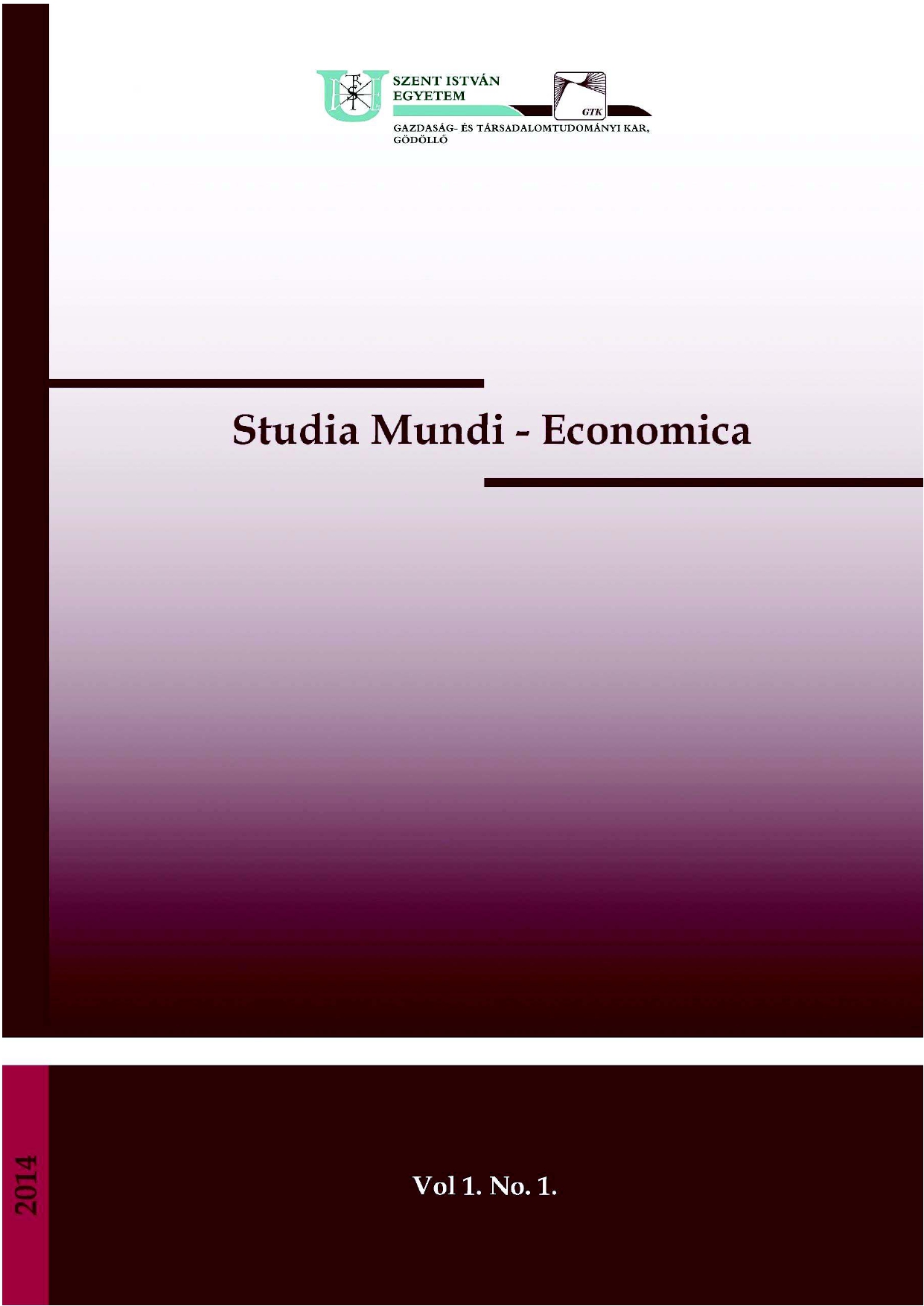Advising the ‘persuadable cluster’ of Hungarian companies on talent management
DOI:
https://doi.org/10.18531/Studia.Mundi.2014.01.01.61-69Kulcsszavak:
Talent management, Cluster analysis, HRAbsztrakt
Based on the Hungarian data of the Visegrad funded project titled „Integrated talent management-challenge and future for organisations in Visegrad countries” (Visegrad Fund / number 21220142), a pilot cluster analysis was conducted to find out the main characteristics of talent management. The recent appreciation of the human capital has contributed to the application of new management procedures in the HR practice. One of them is talent management whose aim is to find and recruit talented people as well as to develop and retain those talents who have already been employed. We have found that there is a close relationship between the economic situation of the Hungarian companies and their talent management. Our paper also aimed at providing practical advice to Hungarian companies, which are open for talent management.
Hivatkozások
Bersin, J.: Predictions for 2013: Corporate Talent Leadership and HR-Nexusof Global Forces Drives New Models for Talent. Bersin by Deloitte.Retrived from: http://www.ihrc.ch/wp-content/uploads/2013/03/predictions-2013-final-1.pdf
Collings, D. G. & Mellahi, K.: Strategic Talent Management: A review and research agenda. Human Research Management Review. 19(4), 2009 DOI: http://dx.doi.org/10.1016/j.hrmr.2009.04.001
Egerová, D. (ed): Talent Management, NAVA, 2013 (“Integrated talent management - challenge and future for organizations in Visegrad countries” project (Visegrad Fund / 21220142)
Hatum, A.: Next generation talent management: Talent Management to Survive Turmoil. New York: Palgrave Macmillan, 2010 DOI: http://dx.doi.org/10.1057/9780230295094
Hunyadi L. – Vita L.: Statisztika közgazdászoknak. KSH. Budapest, 2004
Lewis, R. E., & Heckman, R. J.: Talent management: A critical review. Human Resource Management Review, 16(2), 139, 2006. DOI: http://dx.doi.org/10.1016/j.hrmr.2006.03.001
Michelis, E., Hanfield-Jones, H., & Axelrod, B.: The War for Talent. Boston: Harward Business School Press, 2001
Schuler, R. S., Jackson, S. E. & Tarique, I: Global talent management and global talent challenges: Strategic opportunities for IHRM. Journal of World Business. 46(4), 2011 DOI: http://dx.doi.org/10.1016/j.jwb.2010.10.011
Szűcs I. (ed.): Alkalmazott statisztika. Agroinform, Budapest, 2002.
Sajtos L. – Mitev A.: SPSS Kutatási és Adatelemzési Kézikönyv, Bookline, Budapest, 2007.
Tucker E. – Gandossy R. – Verma N.: Gazdálkodj okosan - a tehetséggel! HVG Kiadó, Budapest, 2007.
Letöltések
Megjelent
Folyóirat szám
Rovat
License
Copyright (c) 2014 Csilla Czeglédi, Zsuzsanna Marosné Kuna, László Hajós

This work is licensed under a Creative Commons Attribution-NonCommercial-NoDerivatives 4.0 International License.
A folyóirat Open Access (Gold). Cikkeire a Creative Commons 4.0 standard licenc alábbi típusa vonatkozik: CC-BY-NC-ND-4.0. Ennek értelmében a mű szabadon másolható, terjeszthető, bemutatható és előadható, azonban nem használható fel kereskedelmi célokra (NC), továbbá nem módosítható és nem készíthető belőle átdolgozás, származékos mű (ND). A licenc alapján a szerző vagy a jogosult által meghatározott módon fel kell tüntetni a szerző nevét és a szerzői mű címét (BY).






